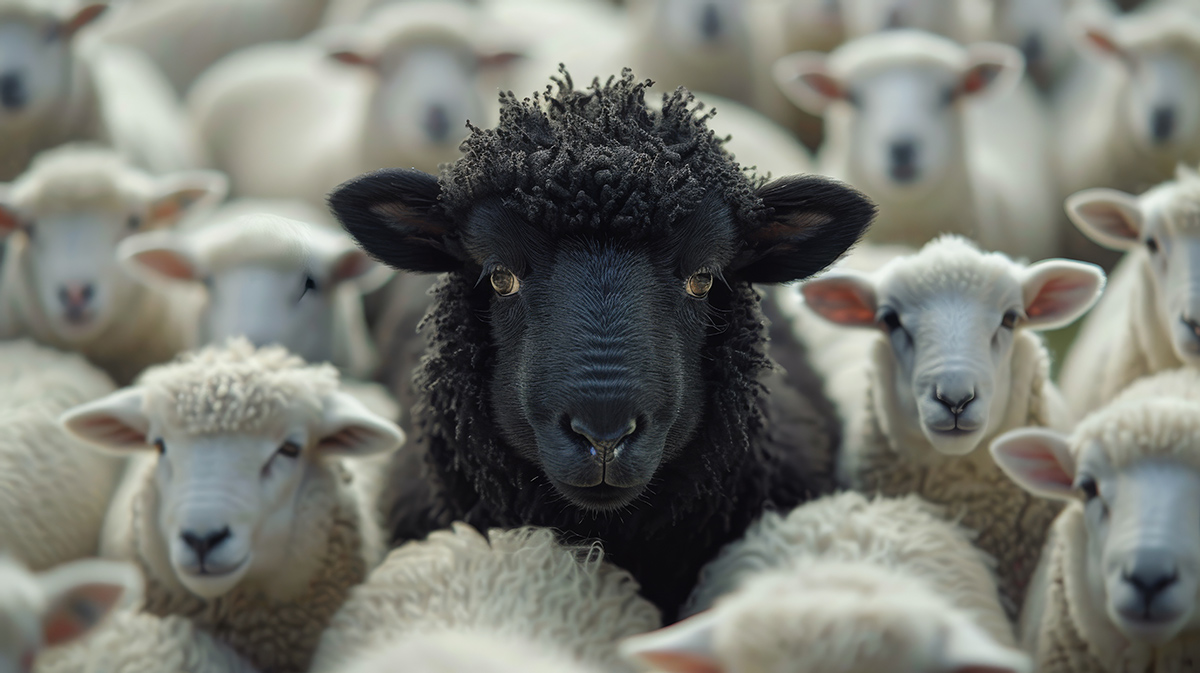The holidays are a time for good food and laughter surrounded by family and friends. But while the uncles and cousins are engaged in conversation, there’s always someone who is surprisingly quiet. They’re currently scrolling on their phone with a faraway look in their eyes, as family members celebrate the “good news” that Trump is president again.
They disagree with a fiery passion, but having an opinion that is even slightly different is social suicide.
A “black sheep” is a family member who is isolated from the rest, someone who is ostracized for believing or doing things differently. Historically, the term refers to the recessive gene for black wool in sheep. As black wool cannot be dyed, it was worth less, making black sheep less desirable to farmers.
In many cases, the black sheep of the family are children who have a partner their family does not approve of. In some of these cases, it’s because they identify as LGBTQ+. Or they may have left the family’s practiced religion or political beliefs.
Elizabeth Dorrance Hall has published research about these strained family relationships, prefering to call black sheep “marginalized family members.” Most people rely on family connections for a sense of identity and a place in the world, according to her research. However, as ironic as it is, it is human nature to alienate members different from the pack.
In 2018, she composed a study with 30 participants who self-identified in online surveys as marginalized family members in an attempt to label their turning point events. These turning points are considered events which make a family member feel more or less marginalized, including weddings, births and funerals. Hall believed the type of event would play a primary role in feelings of marginalization. Her results show the way in which families communicate at these events plays a larger part in family members feeling marginalized than the event itself.
Family members who feel they are outside of the family norm are more likely to feel isolated and dread holiday gatherings. When this happens in a group of friends, it is easier for someone to distance themselves. With families, however, there is a pressure to maintain ties, according to a post from Psychology Today. However, the difficulty in keeping the relationship increases as alienated children age and add spouses/partners into the picture.
In these situations, the family is likely to blame the other person for “corrupting” their children, and they refuse to consider their child has changed.
I am the black sheep of my family, but do not make my opinions heard. In the last few years, holiday gatherings have been a root cause of anxiety. But the idea of being shunned causes me to keep my mouth shut and dissociate until the topic changes or it’s time for a game of cards.
While being the black sheep is a stressful experience, Hall found a consistent feeling of resilience amongst the participants. It was so strong, in fact, she wrote a second paper focused on the ways alienated family members deal with feelings of loneliness, stress and isolation. The most common coping strategy is to seek support from people outside of their family.
Knowing there are other people struggling with feelings of isolation is reassuring and comforting. It is a burden, but not one I have to face alone. That’s what friends are for.

